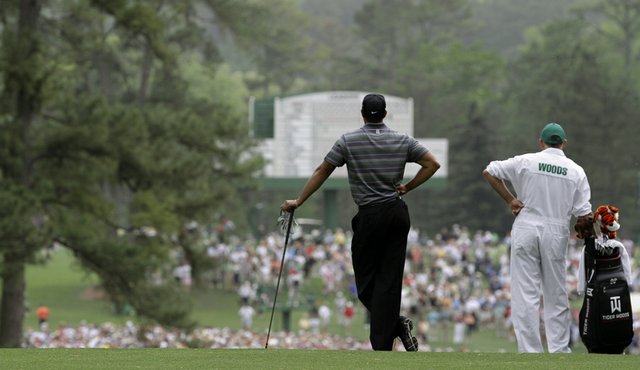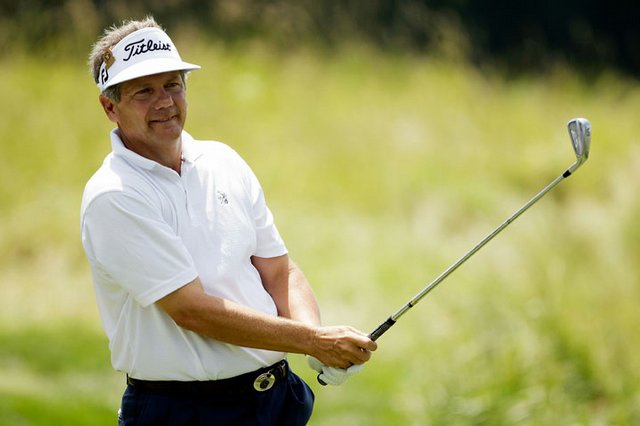After a number of recent posts, Frank Hannigan files this Cannonesque "Nobody Asked Me, But..." Letter from Saugerties:
Dear Geoff,
There are no words to express my gratitude for your posting of The Crazy Swing of a man in Egypt. I wonder what happens when he finds himself in a bunker?
Peter Thomson ran for the Australian equivalent of our Congress. His politics? Let's just say he was not a man of the left. He came here in 1985 to play on the senior tour for only one reason: to beat Arnold Palmer like a drum. He told me not to pay much attention to his scores since "we are playing from the ladies tees."
He is also memorable for his speaking the ultimate truth about instruction which is that neither he nor anyone else could teach a newcomer anything useful other than how to grip the club properly and to aim. Peter once covered a US Open at Oak Hill in Rochester for an Australian newspaper. I asked him what he thought of the course. "It's too good for them" was his response.
Slow play by the women in the Solheim Cup, with 4-ball rounds approaching 6 hours, could be cured immediately by the simple device of sub-letting the role of the committee to officials not employed by the LPGA or the European women's tour. I would put USGA alumnus Tom Meeks in charge and tell him that if any given round takes 4 hours 45 minutes to transpire that he would not be paid.
Corey Pavin's average driving distance on the Tour today is 260 yards, or 8 yards longer than he was in 1999. You figure it's the mustache?
Comparisons of some other short drivers: Jim Furyk 278 now, 268 then. Paul Goydos is up 12 yards in a decade to 276, Billy Mayfair has become a brute at 284 but was only 269 a decade earlier.
In the early 1990s I was a consultant (unpaid) for a golf course project at Liberty State Park - the site of this week's Tour event. It required the blessing of then New Jersey Governor Christie Whitman, herself an enthusiastic golfer.
She wouldn't help us because the mayor of Jersey City said that golf was inherently elitist and that none of his city's precious land should be wasted on the rich. Never mind that the land in question was poisonously polluted. My idea was for a daily fee course supplemented by renting the course out once day a week for huge fees from Wall Street firms who would arrive by boat. What's happened is the creation of a $500,000 private club that is out of the reach of anybody who isn't loaded.
Liberty National is a design of the architectural pair of Tom Kite and Bob Cupp who survived the misfortune of designing a 2nd course at the Baltimore Country Club. It's adjacent to the wonderful Five Farms course created by AW Tillinghast. There were to be 36 holes as routed by Tillinghast. Because of the Great Depression the second course was put off for 50 years. The contrast between the two courses? Let's just say that the Kite-Cupp course concludes with a double green.
I twitched whenever I heard the name "Solheim" on television last week. Remember the great U groove wars of the 1980s when Ping sued both the USGA and the PGA Tour? There were endless meetings in attempt to resolve the matter without litigation. One took place in our USGA offices in New Jersey. Karsten sent one of his primary technicians. The man recorded the meeting secretly with a device hidden in his briefcase, hoping I or my colleague Frank Thomas would be caught saying something that might be useful to Ping in the suit to come.
Never mind how we found out. The tapes are stored in Mayer Brown, the USGA's Chicago law firm. Pity the
meeting did not take place in New York where such bugging is a crime. Anything goes in New Jersey.
Frank Hannigan
Saugerties, New York













